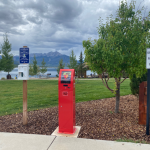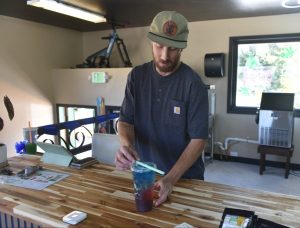Federal judge sides with Vail Health in antitrust lawsuit
The ruling effectively ends years of litigation between Vail Health and a local physical therapy provider

Chris Dillmann/Vail Daily archive
A federal judge’s ruling in favor of Vail Health earlier this month effectively ends a years-long legal saga that centered around a federal antitrust lawsuit brought against Vail Health by a local physical therapy provider.
In a Sept. 10 order, U.S. District Court Senior Judge William J. Martínez granted Vail Health’s motion for summary judgment and concluded that Vail Health did not engage in unlawful anticompetitive practices involving a monopoly on the physical therapy market in its service area.
Sports Rehab Consulting LLC and its founder, Lindsay Winninger, alleged that Vail Health, through its Vail Clinic and Howard Head Sports Medicine, had monopolized or attempted to monopolize the physical therapy market in the Vail Valley between 2012 and 2020. The lawsuit centered on Vail Health’s relationships with The Steadman Clinic and the Steadman Philippon Research Institute, including an agreement that the three entities entered into in December 2015 called “the 10-year partnership,” which Vail Health valued at $173 million in a presentation. Sports Rehab argued the agreement, along with other actions by Vail Health, stifled competition.
Winninger and her company were seeking more than $25 million in damages from the antitrust lawsuit, which was originally filed in 2019. The case appeared headed for a trial set on Feb. 23, 2026, before Martínez’s 28-page order awarded Vail Health complete relief.
In the ruling, Martínez stated that Sports Rehab failed to demonstrate evidence of anti-competitive conduct, or an “antitrust injury” that damaged competition.
“The Court agrees that Plaintiffs have failed to identify actionable exclusionary conduct perpetrated by Vail Health,” Martinez’s ruling states. “This is largely because Plaintiffs ignore or otherwise fail to develop substantive responses to Vail Health’s specific and detailed summary judgment arguments. And the exclusionary conduct Plaintiffs do identify is devoid of record support. As a result, Plaintiffs cannot satisfy the elements of their monopolization and attempted monopolization claims, nor establish antitrust standing.”
The court found that Vail Health’s actions, such as reporting patient data breaches and pursuing business relationships with The Steadman Clinic and the Steadman Philippon Research Institute, were either protected under antitrust law or had legitimate business justifications.
A key point of contention was a letter of intent between Vail Health, The Steadman Clinic and the Steadman Philippon Research Institute to form a new physical therapy business. The letter of intent included a non-compete clause, but it never materialized into a binding agreement, Martinez wrote in his ruling. Furthermore, The Steadman Clinic remained free to collaborate with other physical therapy providers, even after the letter of intent’s expiration.
The court also noted that nearly a dozen other companies providing physical therapy services had commenced operations in the Vail Valley market by 2019.
How the legal actions started
In 2008, Winninger started working as a physical therapist at Howard Head Sports Medicine, a clinic operated by Vail Health. In 2012, she left to become the head physical therapist for the US Ski Team on the women’s World Cup circuit. She founded her own business — Sports Rehab — in the spring of 2014 and opened a clinic in Vail in 2015, the same year she hired David Cimino, a colleague she’d previously worked with at the clinic operated by Vail Health.
According to court documents, Winninger and Cimino both copied documents containing patient health information from Howard Head’s network drive. Vail Health reported the incidents of data breaches to affected patients, news agencies, competitors in the physical therapy industry and several government entities, including the Department of Health and Human Services’ Office of Civil Rights, the Vail Police Department, the Eagle County District Attorney’s Office and the Colorado Department of Regulatory Agencies.
In April 2017, Winninger and Sports Rehab sued Vail Health in state court for defamation and tortious interference, based on its statements “suggesting” she stole documents. The state court granted summary judgment in favor of Vail Health on Sports Rehab’s claims, while a jury in Eagle County later sided with Sports Rehab on all counterclaims brought by Vail Health, ruling that Vail Health suffered zero damages from the data breaches.
The Colorado Court of Appeals affirmed the trial court’s summary judgment and the jury’s verdict on Aug. 21 of this year.
In a statement, Vail Health’s Chief Legal Officer Kevin Rudolph said: “Vail Health is pleased to resolve this long-running dispute to a favorable resolution on both the State and Federal levels. Our focus is, and always will be, on fulfilling our mission of elevating health across our mountain communities.”
This story is from VailDaily.com.

Support Local Journalism

Support Local Journalism
As a Summit Daily News reader, you make our work possible.
Summit Daily is embarking on a multiyear project to digitize its archives going back to 1989 and make them available to the public in partnership with the Colorado Historic Newspapers Collection. The full project is expected to cost about $165,000. All donations made in 2023 will go directly toward this project.
Every contribution, no matter the size, will make a difference.









